
Erin Kopp, NP, discusses the vital role that supportive care plays in oncology, especially for aggressive diseases such as lymphoma.

Erin Kopp, NP, discusses the vital role that supportive care plays in oncology, especially for aggressive diseases such as lymphoma.

Patients with Medicare are delaying the recommended treatment with TKIs due to the medication's high cost.


Brain cancer has replaced leukemia as the leading type of cancer causing death among children.

Blinatumomab (Blincyto) gained accelerated approval by the FDA for the treatment of pediatric and adolescent patients with Philadelphia chromosome-negative (Ph-) relapsed or refractory B-cell precursor acute lymphoblastic leukemia (ALL)

Following on a 10-month improvement in progression-free survival (PFS), the FDA has approved ofatumumab (Arzerra) in combination with fludarabine and cyclophosphamide as a treatment for patients with with relapsed chronic lymphocytic leukemia (CLL).

Untreated chronic myeloid leukemia (CML) has a reported median survival of only 2 to 3 years.

CE lesson worth 1.0 contact hours that is intended for advanced practice nurses, registered nurses, and other healthcare professionals who care for cancer patients.

Survivors of childhood leukemia who received chemotherapy involving high concentrations of methotrexate were found to be more likely to struggle with brain functionality in the long term.

Though there are few therapeutic options for patients with myelofibrosis, ruxolitinib (Jakafi) represents an important look towards the future, according to Maureen E. Thyne, a physician assistant in the Outpatient Leukemia Service at Weill Cornell Medical College.

The FDA granted nivolumab (Opdivo) accelerated approval for the treatment of patients with classical Hodgkin lymphoma (cHL) that has relapsed or progressed after autologous hematopoietic stem cell transplantation (HSCT) and posttransplantation brentuximab vedotin (Adcetris).


An intervention specifically aimed at reducing the trauma and anxiety that often comes with parenting a child undergoing hematopoietic stem cell transplant proved especially helpful for parents during the time of the actual transplant and subsequent hospitalization.

The FDA approved the BCL-2 inhibitor venetoclax (Venclexta) for patients with chronic lymphocytic leukemia who have a 17p deletion (del[17p]), following at least 1 prior therapy.

Myeloproliferative neoplasms (MPNs) are “still in their infancy in the cancer world,” according to Rebecca N. Claassen, RN, BSN, OCN.
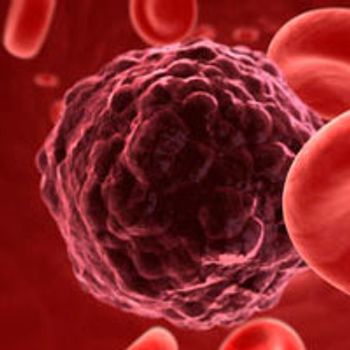
An impressive improvement in progression-free survival (PFS) in the RESONATE-2 trial led to the FDA’s approval of ibrutinib (Imbruvica) March 4 for the frontline treatment of chronic lymphocytic leukemia, based on data from the RESONATE-2 trial.
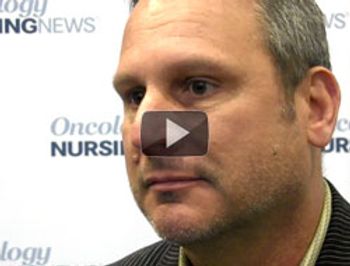
Blake A. Morrison, PharmD, vice president, Medical and Scientific Affairs, Multiple Myeloma Research Foundation, discusses adverse events associated with new agents to treat patients with multiple myeloma.
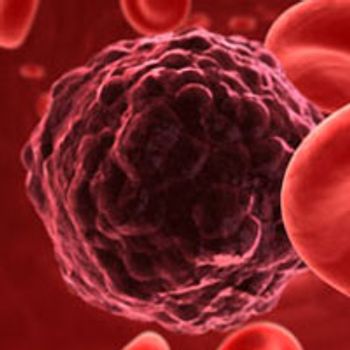
Ofatumumab (Arzerra) has been approved by the FDA as extended treatment for patients in complete or partial response following at least two lines of therapy for recurrent or progressive chronic lymphocytic leukemia (CLL).
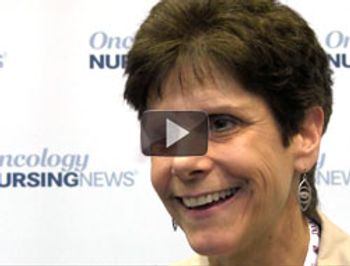
Phyllis McKiernan, MSN, APN, OCN, nurse practitioner, John Theurer Cancer Center at Hackensack University Medical Center, discusses blood and marrow transplantation and treating chronic myeloid leukemia (CML) with targeted therapies.

C. Ola Landgren, MD, PhD, hematologic oncologist, chief, Myeloma Service, Memorial Sloan Kettering Cancer Center, discusses treating smoldering multiple myeloma.
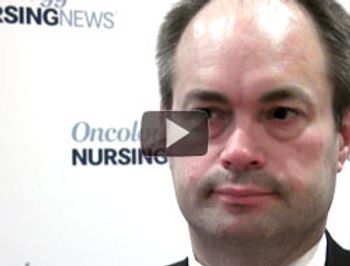
William Wierda, MD, PhD, medical director, Leukemia Center, The University of Texas MD Anderson Cancer Center, discusses treatment of chronic lymphocytic leukemia (CLL) in young and elderly patients.
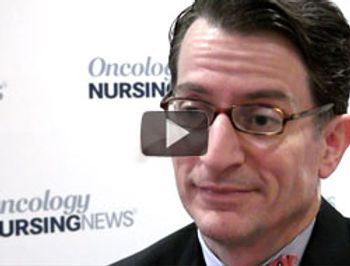
Michael Mauro, MD, hematologist and leader of the Myeloproliferative Neoplasms Program, Memorial Sloan Kettering Cancer Center, discusses cessation of chronic myeloid leukemia (CML) treatment for therapy-free remission.Â

Phyllis McKiernan, MSN, APN, OCN, nurse practitioner, John Theurer Cancer Center at Hackensack University Medical Center, discusses new drug approvals for multiple myeloma and addressing adverse events.Â

Patricia Kropf, MD, assistant professor, Division of Bone Marrow Transplants, Fox Chase Cancer Center, discusses home administration of Synribo (omacetaxine mepesuccinate).
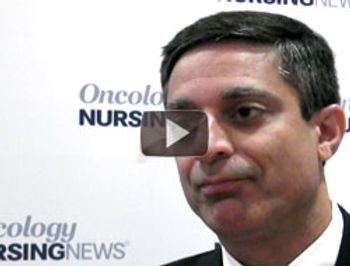
Sagar Lonial, MD, chief medical officer, Winship Cancer Institute of Emory University and Professor and Executive Vice Chair, Department of Hematology and Medical Oncology, Emory University School of Medicine, discusses treating patients with myeloma.